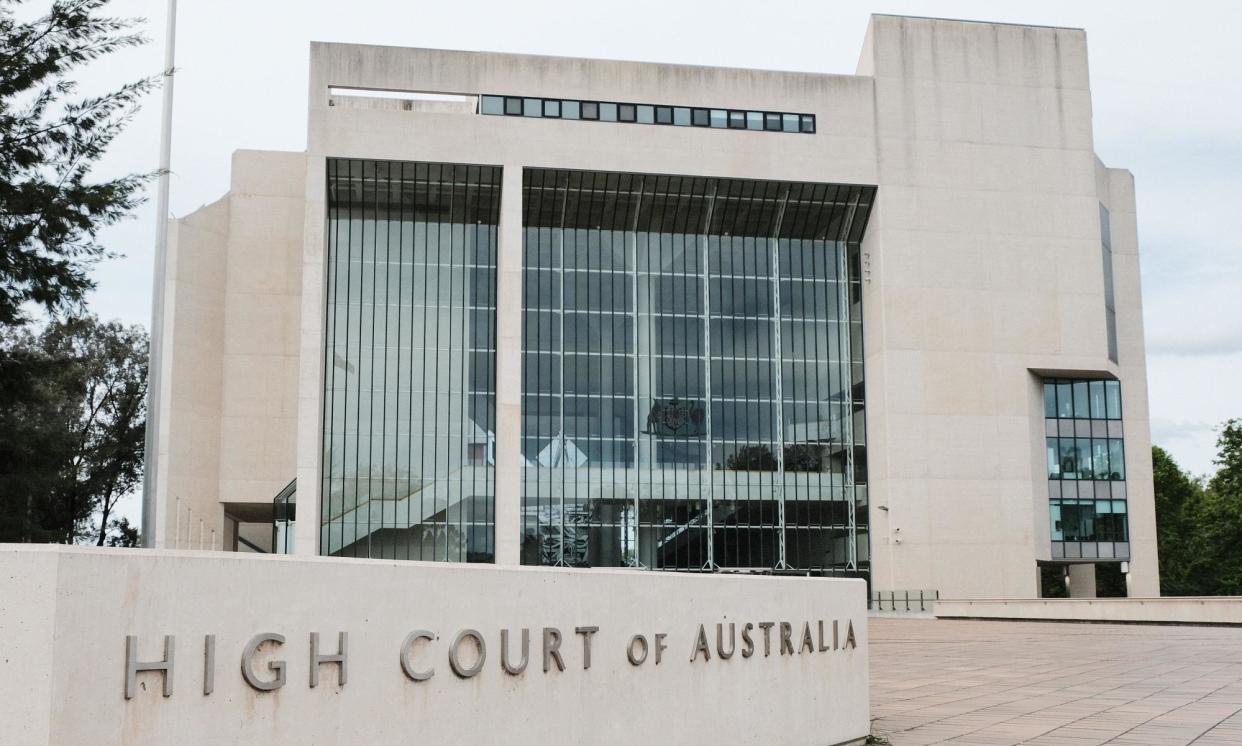Curfews on released detainees are not punitive and less onerous than Covid restrictions, commonwealth says

Curfews imposed on non-citizens released from immigration detention are not punitive because they are less “onerous” than the Covid-19 curfews in Victoria and New South Wales, the federal government has suggested.
The commonwealth makes that claim in its defence to a legal challenge against the electronic monitoring and curfews imposed on people released as a result of the high court’s ruling that indefinite detention is unlawful.
The commonwealth has also rejected claims ankle bracelets cause “stigma and indignity” by arguing that “at worst, it might produce slight discomfort or embarrassment” and can be hidden under clothes.
Related: Two people held in Australian immigration detention longer than necessary due to email mishaps
In November, the high court ruled that unlawful non-citizens who cannot be deported must be released from immigration detention because indefinite detention is punitive and breaches the separation of powers.
Lawyers for YBFZ, a stateless man from Eritrea, are now asking the court to apply the same logic to strike down the visa conditions imposed on those released.
As at 31 May, about 160 people have been released from immigration detention; 85 of that group are subject to electronic monitoring and 77 have a curfew, usually from 10pm to 6am.
In submissions filed on Friday the commonwealth argued that curfews are “not remotely comparable” to detention in custody because,there is no restriction on non-citizens the other 16 hours a day, they can choose where they reside, and they are “likely to be asleep” at those hours.
“The reality is that curfews are imposed for a range of non-punitive reasons both in Australia and other Western liberal democracies,” the defence stated.
It cited that “a youth curfew was recently imposed in Alice Springs by the relevant minister to restore public order” and that “the police or parole authorities may impose curfews as bail or parole conditions”.
“Further, considerably more onerous curfews are imposed for purposes that obviously are not punitive,” the defence continued.
“For example, curfews were imposed by public health officials in Victoria and certain regions of New South Wales during the Covid-19 pandemic (and, likewise, in regions of the United States and Canada).”
YBFZ’s visa was cancelled in December 2017 after he was convicted of offences of burglary and recklessly causing injury.
Related: Andrew Giles backs away from claim drones being used to track released immigration detainees
YBFZ was released from immigration detention on 23 November. He was charged with breaches of visa conditions, but the charges were dropped due to the invalidity of bridging visas issued to those released.
The ankle bracelet and curfew conditions were reimposed on YBFZ by a departmental delegate of the immigration minister. The commonwealth’s defence said this was in line with advice from the community protection board due to the “significant risk to the Australian community” that he was assessed to pose in light of his “extensive and continued criminal history” and “severe mental health issues”.
“The reality of that risk is readily apparent, the plaintiff having been sentenced to terms of imprisonment on 13 occasions, for offences including malicious wounding, assault with a weapon and assaulting an emergency worker.”
The high court challenge is set to be heard in August.

 Yahoo News
Yahoo News 
